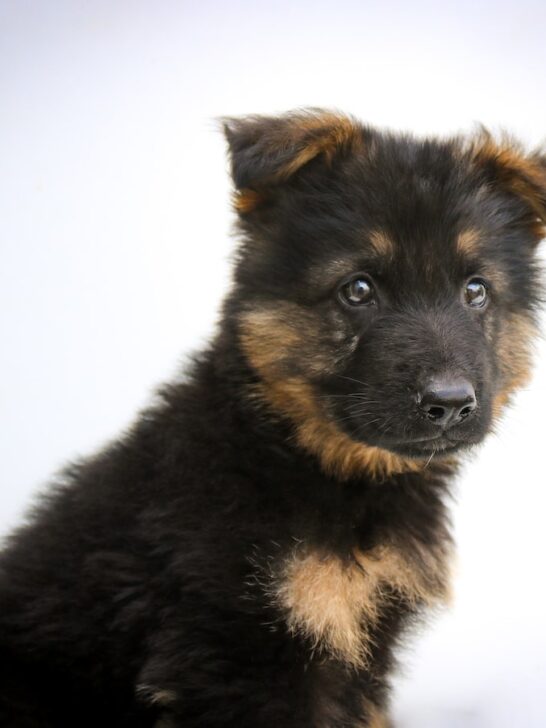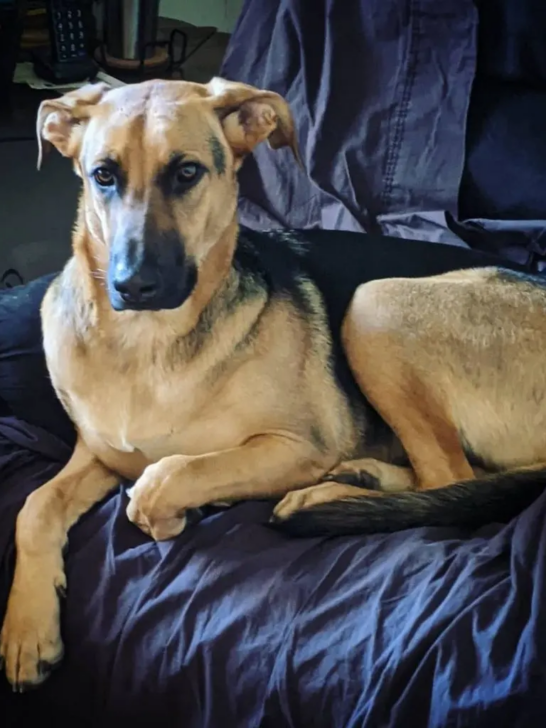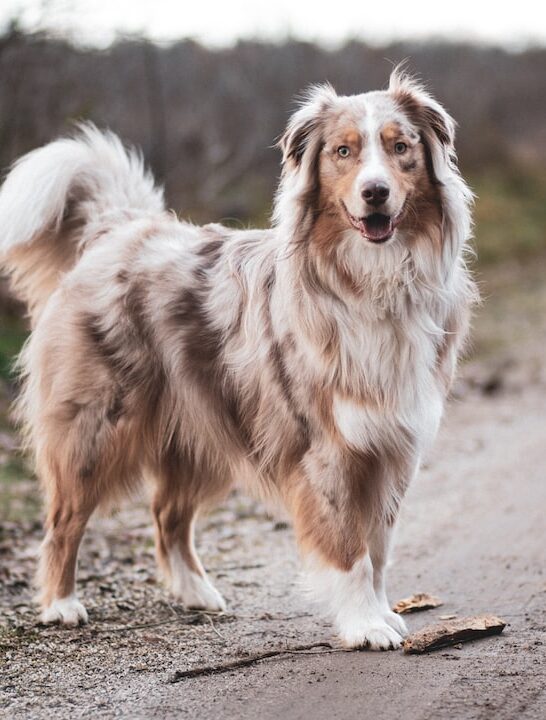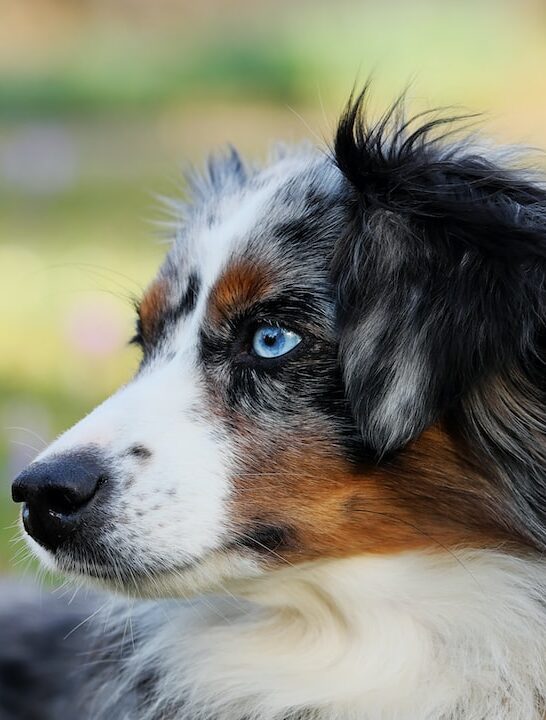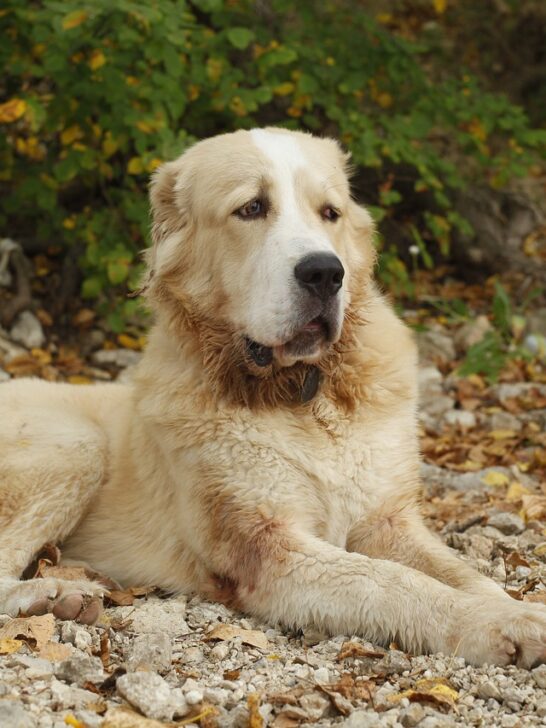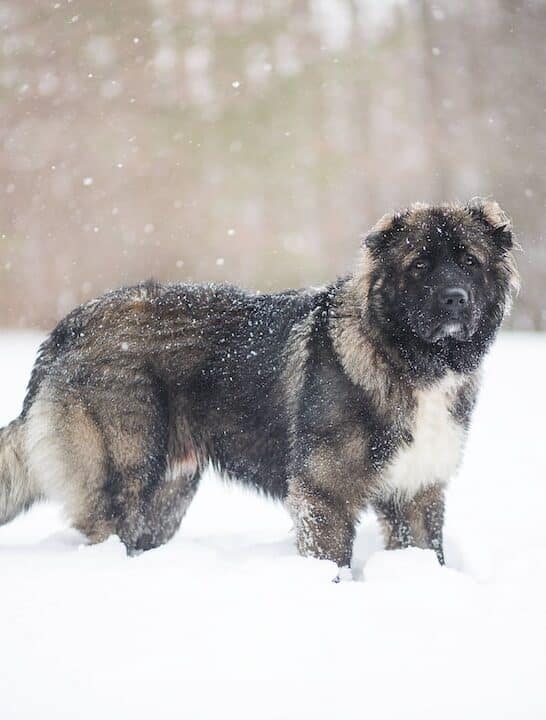Mini Australian Shepherd Puppy – Breed Characteristic
|
Prefer listening over reading? We got you covered!
Getting your Trinity Audio player ready...
|
Are you looking for a lively and loyal companion? Look no further than the Mini Australian Shepherd puppy!
This small herding dog, often confused with the Miniature American Shepherd, is perfect for active households. With their intelligence and trainability, they excel in various activities and tricks.
Despite their name, these energetic dogs were actually developed in the United States.
History and Origins
Miniature Australian Shepherds, also known as Mini Aussies, were developed in California in the 1960s. They originated from a herding dog from the Pyrenees Mountains. They became popular on the rodeo circuit due to their portability and suitability for indoor living. By the mid-1970s, a consistent version of mini Aussies was established.
They are a popular dog breed known for their intelligence and agility. Mini Aussies have a rich breed history. They are a separate breed from the Mini American Shepherd by the American Kennel Club. AKC doesn’t recognise Miniature Australian Shepherds as a breed, though.
Did You Know?
| 1 | 2 | 3 | 4 |
|---|---|---|---|
| The Australian Shepherd likely originated from the Basque region of Spain. Basque shepherds brought their dogs to Australia and eventually to the United States, leading to the breed being named Australian Shepherds by Americans. The modern breed we know today was developed exclusively in the United States. | This breed has been referred to by several other names. Some of these include Spanish Shepherds, Pastor Dogs, Bob-Tails, Blue Heelers, New Mexican Shepherds, and California Shepherds. | According to legend, Native Americans often referred to Australian Shepherds as “ghost eye” and believed them to be sacred. While not all Australian Shepherds have blue eyes, it is common for the breed to possess pale blue, “ghostly” eyes. | In the 1970s, an Australian Shepherd named Hyper Hank became famous for his extraordinary ability to catch flying discs. Owned by Eldon McIntire, Hank achieved great success in disc-catching competitions. They later performed at events like the Super Bowl and got the chance to play with the Carter family at the White House. |
Temperament and Personality
The temperament and personality of the Miniature Australian Shepherd puppies make them a popular choice for families looking for a lively and loyal companion.
This miniature breed of dog is known for its friendly and playful nature. The Miniature Australian Shepherd’s lively temperament and loyal personality make them a wonderful addition to active households. They thrive on daily exercise and mental stimulation.
With their charming and affectionate nature, it’s no wonder why this breed is loved by so many.
Exercise and Activity Needs
Exercise is essential for the health and well-being of small Australian Shepherd puppies. They require at least one to two hours of physical activity per day.
Miniature Australian Shepherds are active and energetic dogs, eager to please their owners. Engaging in regular exercise and providing them with mental stimulation is crucial for their overall happiness.
These intelligent and agile dogs thrive in activities such as walks, jogs, hikes, and playtime. Dog sports like agility can also provide both physical and mental challenges. Puzzle toys are another great way to keep their minds sharp. They will also enjoy any form of nose work games.
Grooming and Coat Care
Regular brushing is necessary to maintain the health of a Mini Aussie’s coat and prevent tangles. The Miniature Australian Shepherd has a medium-length double coat. It requires regular grooming and care. To help you understand the importance of coat care for your Mini Aussie, here are some key points:
| Grooming Tips | Description |
|---|---|
| Brushing | Brush your Mini Aussie’s coat weekly to remove loose fur and prevent tangles. This will also help minimize shedding, which tends to increase during spring and fall. |
| Bathing | Bathe your Mini Aussie every month or as needed. Be sure to use a dog-friendly shampoo and thoroughly dry the coat afterwards. |
| Nails and Ears | Check your Mini Aussie’s nails regularly and trim them monthly. Clean their ears with a dog-safe ear cleaning solution to prevent infections. |
Training and Obedience
Training and obedience are essential for developing a strong bond with your Mini Aussie. These intelligent dogs are easy to train. This makes the process enjoyable for both you and your furry friend. Here are three key points to keep in mind when it comes to training and obedience for your Mini Australian Shepherd pup:
- Consistency: Consistency is key when it comes to training your Mini Aussie. Establish clear rules and boundaries, and be consistent in enforcing them. This will help your dog understand what is expected of them and lead to better obedience.
- Positive Reinforcement: Mini Aussies respond well to positive reinforcement. Use treats, praise, and rewards to reinforce good behavior. This will encourage your dog to continue learning. This positive approach will make training sessions more enjoyable and effective
- Socialization: Socialize your dog as soon as possible. Expose your dog to different people, animals, and environments from a young age. This will help them become well-rounded and confident pets. It can also reduce the likelihood of behavioral issues down the line.
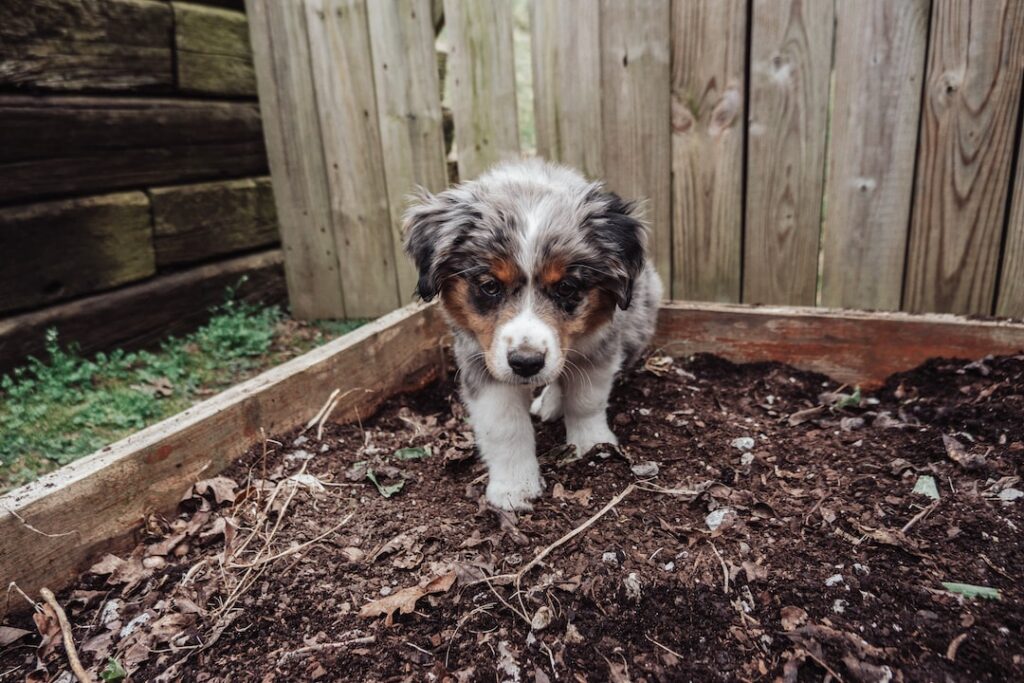
Health and Common Issues
Like any purebred dog, Mini Aussies can be prone to certain health problems. It’s important to be aware of these potential health issues to ensure the well-being of your furry friend.
Some common health problems that Miniature Australian Shepherds may face include:
- gastrointestinal issues like diarrhea and vomiting
- eye issues such as infections or genetic conditions
- behavioral conditions
Regular veterinary check-ups and staying informed about these common health issues are crucial for maintaining your Mini Aussie’s health. By being proactive and providing proper care, you can help your Miniature Australian Shepherd live a long and healthy life.
Socialization and Behavior
When socializing your Miniature Aussie, it’s important to expose them to different people, animals, and environments. This can help them develop a well-rounded and confident personality. Socialization plays a crucial role in shaping your pup’s behavior. It ensures they become a friendly and well-behaved companion.
Here are three key things to keep in mind when socializing your Miniature Australian Shepherd pup:
- Introduce your dog to various people: Allow your Mini Aussie to interact with different individuals. This should include adults, children, and strangers. This exposure will help them become comfortable around new people. It can also prevent fear or aggression towards unfamiliar faces.
- Familiarize your dog with other animals: Take the time to introduce your Miniature Australian Shepherd to other dogs, cats, and small animals. This will teach them appropriate social skills. It also helps them become a friendly and sociable companion.
- Expose your dog to different environments: Take your Mini Aussie on outings to different places. Take your dog to parks, beaches, and busy streets. This exposure will help them adapt to new surroundings. It will help them build confidence in different situations.
Remember, socializing your Miniature Australian Shepherd pup is an ongoing process. It should start from a young age and continue throughout their life. By following these tips, you can help your shepherd puppy become a well-adjusted and friendly member of your family.
Size and Appearance
With their compact size and striking coat patterns, Miniature Australian Shepherds are known for their unique appearance. These adorable dogs typically stand between 13 to 18 inches tall and weigh around 20 to 40 pounds. Despite their small stature, they possess a robust and athletic build.
Mini Aussies have a medium-length double coat that is weather-resistant and comes in various colors and patterns, such as blue, red, and merle. Their coat requires regular brushing to keep it healthy and prevent tangles.
Diet and Nutrition
Feeding a balanced canine diet and consulting with a vet regarding food type and quantity are important for the overall health and well-being of Miniature Australian Shepherds. To ensure that your Mini Aussie is getting the right nutrition, here are three key points to consider:
- Diet and Nutrition: Provide your Miniature Australian Shepherd with a high-quality, balanced diet that meets their specific nutritional needs. Consult with your vet to determine the best food type and quantity for your dog.
- Coat Care: Mini Aussies have a thick, weather-resistant double coat that requires regular brushing to minimize shedding. Proper grooming helps keep their coat healthy and improves their overall appearance.
- Feed Responsibly: Monitor your Mini Aussie’s food intake and avoid feeding them human food scraps. Stick to a measured diet to prevent overfeeding and maintain a healthy weight.
Adoption and Breeder Options
You can explore adoption options at local shelters or rescue organizations, or you can consider purchasing a puppy from a reputable breeder.
Adoption is a wonderful way to give a loving home to a dog in need. Many shelters and rescue organizations have Mini Aussies available for adoption. They often have puppies as well as adult dogs. By adopting, you not only provide a forever home for a deserving dog, but you also support the important work of these organizations.
If you decide to purchase a puppy from a breeder, it’s important to do your research and choose a reputable breeder. Look for breeders who prioritize the health and well-being of their dogs. A good breeder should be transparent about their breeding practices.
Whichever option you choose, you will be welcoming a new member into your family and providing a loving home for a Miniature Australian Shepherd puppy.
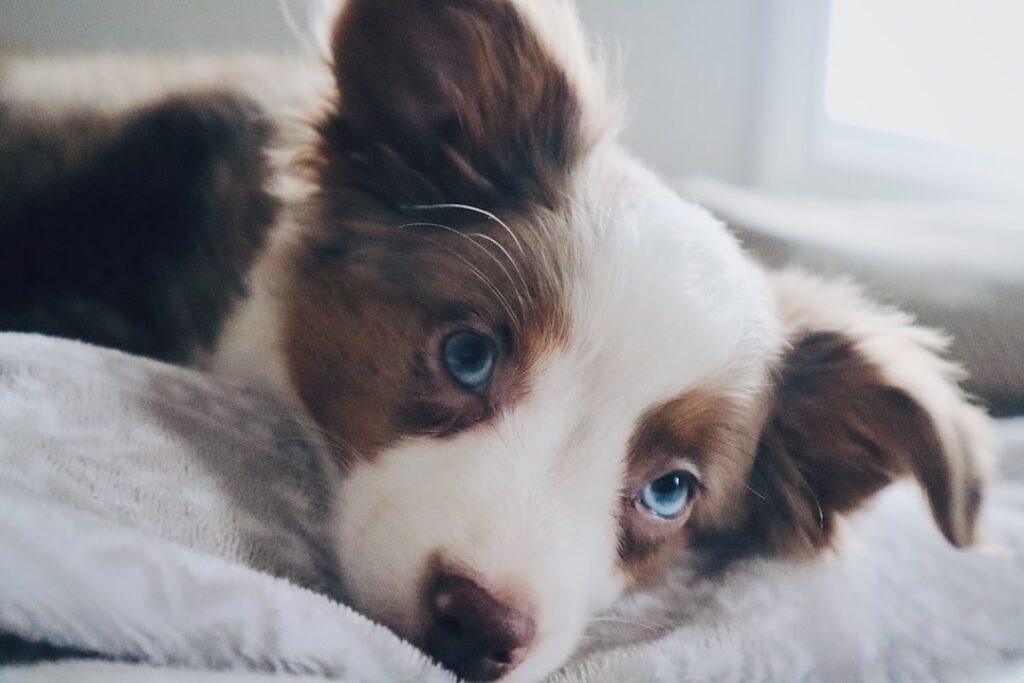
Conclusion
If you’re looking for a lively and intelligent companion, a Mini Australian Shepherd puppy could be the perfect fit for you. These dogs have a rich history and origins, proving their excellence as herding dogs and beloved family pets. Their exercise and grooming needs do require commitment, but the rewards of their loyalty and friendly demeanor make it all worthwhile.
By providing proper training, socialization, and regular veterinary care, you can ensure a happy and healthy life for your Mini Aussie.
























